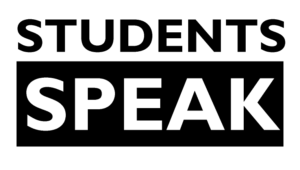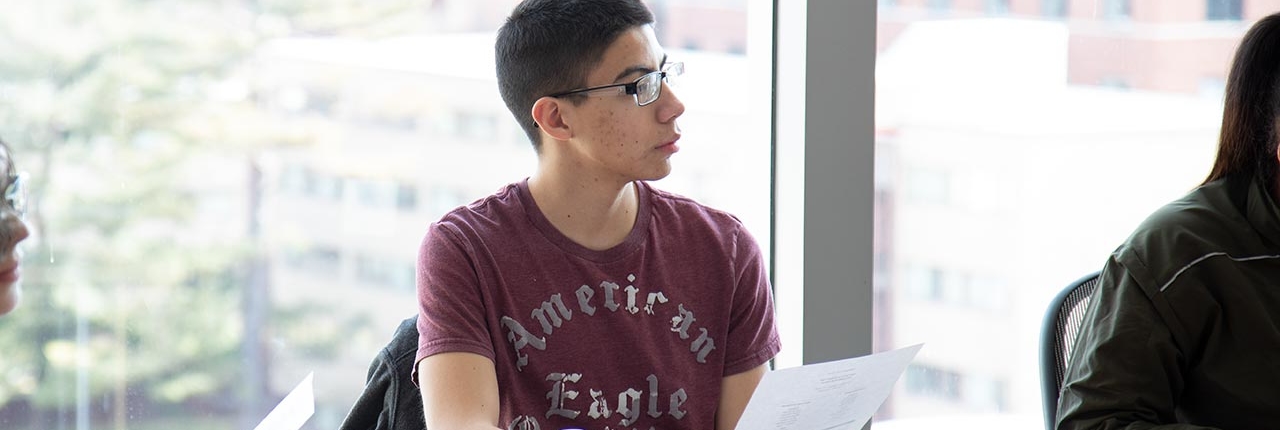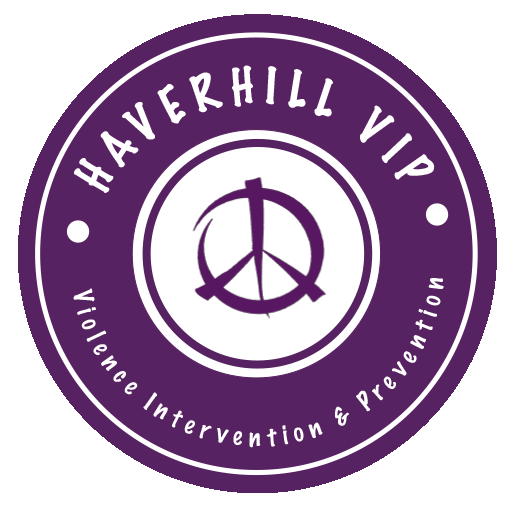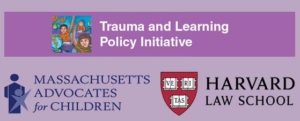Jonathan
Hello everyone. Thank you for having us here today and for letting us tell you what we as students need in order to achieve and do well at school. My name is Jonathan and I am a junior. After I graduate my dream is to become a Marine and later on to go to college so I can become an officer in the Marine Corps, where I hope to have a long career.
I think everyone in this room can agree that we all want students to learn and achieve more. But today I would like to talk about two different versions of what achievement can mean. The first version is what I currently experience in some of my classes where the focus seems to be mostly on tests and memorizing information. These classes don’t seem to prioritize making time for students to approach our teachers, to discuss topics with our classmates, and to learn things in a deep way. It feels like we are being asked to soak up as much information as we can and repeat it on the test, but then it is OK if we forget about it the rest of the day.
This is a problem because, when mid-terms come up and you have to memorize so much information, a sponge can only hold so much, and so can a brain. You end up overloading yourself when you have many classes and many tests that use this approach. This doesn’t feel right. And, as a student, it doesn’t feel safe. It makes you afraid of failing. With teachers and classes that use this version of achievement, the whole semester makes you feel like you are just hauling a bunch of rocks for no reason.
But some teachers use a different version of achievement. In these classes, teachers help the kids open up. We are able to make connections with our classmates and this means we can cooperate with each other. Cooperation means learning faster. And when you and your teacher and your classmates are working together like this, it’s like a triangle of good.
One time I experienced this second type of achievement was back in my sophomore year, with my chemistry teacher. She was just the best. She let us know that, no matter if you were failing the class or if you didn’t get something right, she was going to be there as long as she could until you understood it. And she mixed it all with jokes and funny examples where we could laugh and also understand the information. Around vacation times she would do something nice like make waffles for the whole class.
To be honest, even with all of this support, I was still struggling pretty bad with chemistry, and finals were up. She knew I was struggling because I stayed for two class periods working on the test and after I was done with my other finals I still came back later to try to finish it. And she told me, “I know you tried a lot, so I’m going to treat this test as if you knew what you were doing and I will give you as much slack as I can.” I ended up putting in a lot of time on that test. I showed a lot of my work, so that she could grade my thinking, not just my final answers. Sometimes she would correct a place where I did something wrong, a simple mistake like flipping a number when I shouldn’t have.
And with that, she gave me enough credit that I ended up getting a 60, which was just enough so I could pass. Did I master chemistry as much as some of my classmates who got better grades? Maybe not, but because of how hard I worked, I bet my sponge will hold onto the 60 percent of chemistry I learned a lot longer than some of the others.
This second type of achievement is the version I think we should be aiming for. I like to call this genuine learning, learning you can hold on to. And this is why safe and supportive schools are so important. With safety, cooperation and community – rather than just memorization – all of our students will learn and achieve so much more. Thank you for listening, and please keep prioritizing safe and supportive schools.
“When mid-terms come up and you have to memorize so much information, a sponge can only hold so much, and so can a brain.”
—Jonathan
“With safety, cooperation and community – rather than just memorization – all of our students will learn and achieve so much more.”
—Jonathan
“Cooperation means learning faster. And when you and your teacher and your classmates are working together like this, it’s like a triangle of good.”
—Jonathan
Jonathan was a member of the Haverhill High School VIP Program. Learn more about VIP and students’ advocacy here.



